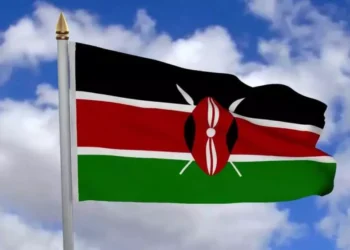Given the recent announcement of the date of the Presidential Elections Tribunal verdict, there have been mixed reactions and anticipations on what will be the judgement of the appellate court in Abuja on Wednesday.
While some wonder whether the court might overturn the February 25 election and order a rerun, others are in doubt that such a verdict might further plunge the country into deeper crisis and unrest.
Considering that no presidential election had been overturned by a court of law in Nigeria since 1999, such an occurrence isn’t altogether unprecedented in Africa as a whole.
In this report, Nairametrics examines four African countries where their presidential elections were later overturned by the appellate or supreme court, beginning from the most recent to the distant past.
1. Malawi (2019):
In May 2019, Malawi held its presidential election, ultimately leading to the declaration of the incumbent president, Peter Mutharika, as the winner.
However, this election’s outcome was shrouded in controversy, with numerous allegations of irregularities and electoral fraud. In a significant turn of events in February 2020, the Malawi Constitutional Court made a historic ruling. It nullified the results of the 2019 presidential election, citing massive irregularities, a lack of transparency, and a failure to adhere to proper electoral procedures.
This ruling was groundbreaking, representing the first instance in Malawi’s history where a presidential election was overturned by the judiciary.
Subsequently, a new presidential election was conducted in June 2020, with Lazarus Chakwera emerging as the victor. This entire electoral process, along with its annulment, underscored the pivotal role of fair and transparent democratic practices, as well as the rule of law, in the ongoing development of Malawi’s democracy.
2. Kenya (2017):
In August 2017, Kenya conducted a presidential election, initially declaring the incumbent president, Uhuru Kenyatta, as the winner.
Nevertheless, this election was marred by profound controversy, with allegations of irregularities and electoral misconduct surfacing, leading to doubts about the legitimacy of the results.
In a historic turn of events in September 2017, the Kenyan Supreme Court made a groundbreaking decision to annul the presidential election results.
The court cited extensive irregularities, a lack of transparency, and a failure to adhere to proper electoral procedures as the primary reasons for this landmark ruling.
This event marked a juncture in Kenya’s history, as it represented the first instance where a presidential election had been nullified by the judicial system.
Subsequently, a fresh presidential election took place in October 2017, resulting in the re-election of Uhuru Kenyatta as president.
3. Comoros (2016):
In the year 2016, the Comoros Islands’ presidential was overturned by the High Court of the country.
This election resulted in the declaration of Azali Assoumani as the victor. However, the electoral process was shrouded in controversy, characterized by allegations of irregularities and electoral improprieties that raised questions about the credibility of the outcome.
The Constitutional Court of the Comoros, in the same year, annulled the results of the 2016 presidential election. The court’s ruling was based on the evidence of substantial irregularities, a lack of transparency, and failure to adhere to proper electoral procedures.
Following the annulment, a new presidential election was organized, seeking to restore confidence in the democratic process. In this subsequent election, Azali Assoumani once again emerged as the victor, solidifying his position as the president of the Comoros.
The entire electoral process, from its annulment to the re-election of Azali Assoumani, highlighted the paramount importance of maintaining fair and transparent democratic principles and upholding the rule of law in the Comoros’ democratic journey.
4. Madagascar (2001):
In 2001 Madagascar held a presidential election. This election initially declared Didier Ratsiraka as the winner. However, it quickly became apparent that the electoral process was marred by allegations of irregularities and electoral misconduct, creating doubts about the legitimacy of the results.
In a landmark decision, Madagascar’s High Constitutional Court, in the same year, nullified the results of the 2001 presidential election.
The court’s ruling was based on compelling evidence of substantial irregularities, a lack of transparency, and a failure to adhere to proper electoral procedures.
Following the annulment, the nation faced a protracted political crisis, leading to a power-sharing agreement between Didier Ratsiraka and his opponent, Marc Ravalomanana.
This agreement, known as the Dakar Agreement, aimed at resolving the political deadlock and moving Madagascar toward a more stable future.
While the 2001 presidential election results were not reversed, the annulment itself and the ensuing political crisis underscored the deep divisions and disputed nature of the election.
What You Should Know
Earlier, Nairametrics reported that the verdict in the petitions filed by the PDP and Atiku Abubakar, as well as the Labour Party and Peter Obi, is scheduled for release on Wednesday, September 6, 2023.
The court is expected to decide whether the much-disputed February 25th election will be upheld or a different verdict will be given.
Mr. Peter Obi and Atiku Abubakar filed their individual cases five months earlier, challenging the outcome of the election and seeking to disqualify President Tinubu.
























